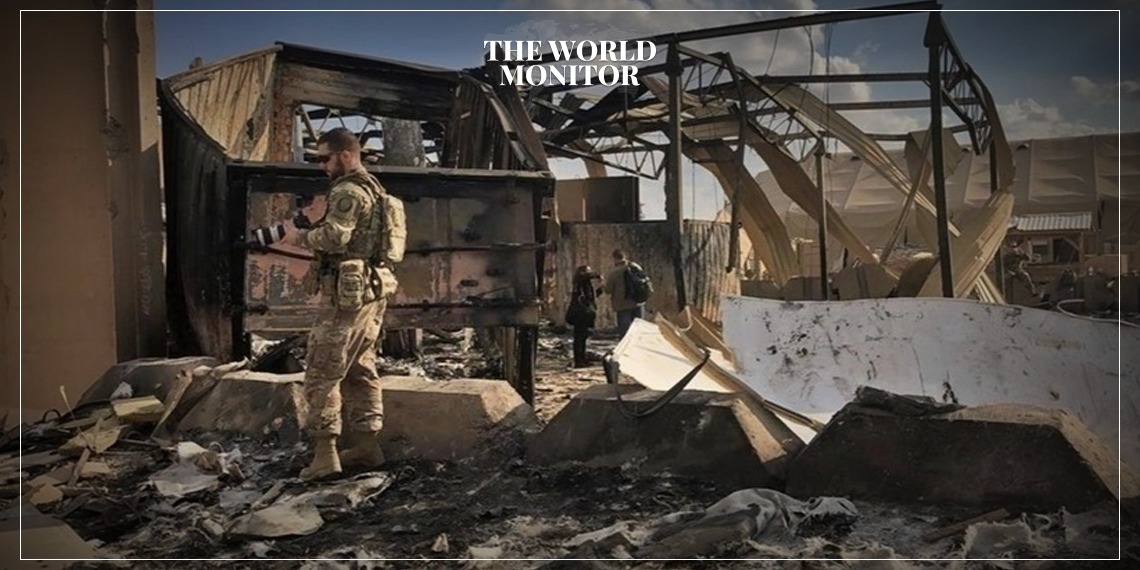An Iraqi militia announced on Friday that it had launched a rocket attack on a U.S. military base in Syrian territory. The militia stated that the attack was in response to the Gaza war and targeted the American base in Kharab Al-Jeer, Hasakah, Syria.
The attack is part of ongoing assaults by Iraqi militias, aligned with Iran, on American military bases in both Iraq and Syria. The number of strikes has approached 100 since the Gaza war began on October 7. The Syrian Observatory for Human Rights reported hearing loud explosions at the Kharab Al-Jeer U.S. base in Hasakah due to a dual attack with drones and missiles launched by Iran-backed groups.
The U.S. air defenses attempted to intercept the rockets and drones, with no information on human casualties reported so far.
The recent attacks by Iraqi militias on US bases can be traced back to the escalating conflict in Gaza, which began with a significant Hamas attack on Israel on October 7, leading to a severe Israeli response. This situation has prompted various Iran-aligned Iraqi militias to resume their attacks against US forces in Iraq and Syria. These militias perceive the US as a supporter of Israel’s actions in Gaza, which they describe as “genocide” against the Palestinians.
The Iraqi militias, describing themselves as “the Islamic Resistance in Iraq,” have claimed responsibility for targeting key US bases, including the Al-Asad Airbase in the western Iraqi governorate of Anbar and Harir US Airbase near Erbil. These attacks have included the use of drones and rockets, with some of them being intercepted by US defenses. The militias assert that their attacks are in direct response to Israeli actions in Gaza and the perceived US support for these actions.
There has been a significant uptick in these attacks, with the militias claiming responsibility for numerous strikes since the beginning of the Gaza war. The resumption of hostilities by these militias follows a year-long ceasefire with US forces, indicating a substantial escalation in the region’s tensions.
The situation has raised concerns about a regional spillover of the Gaza war, as clashes between Israel and Hezbollah and its allies in southern Lebanon, as well as these drone and missile attacks by Iran’s proxies, have intensified. These developments are part of a broader regional conflict that involves various players and interests, further complicating the already volatile situation in the Middle East.






